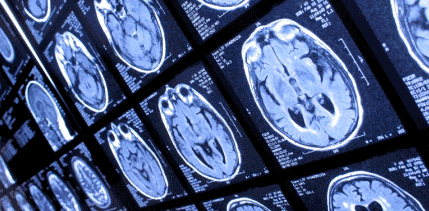Call Now 866-865-3425
Since 1982 … Our number One priority is YOU!
Traumatic injury to the head is classified according to the type of damages it causes to the skull. The three major categories are:
- Closed head injury
- Depressed skull fracture
- Compounded skull fracture
Loss of Consciousness & Medical Checks for Brain Injury
If there is brain damage, it can cause a person to become unconscious. An individual could have brain damage even if the person does not lose consciousness.
If you or a loved one has suffered a brain injury as a result of an accident, contact The Law Offices of Shapiro & Associates for a free consultation.
With a conscious patient, some of the things that the doctor does to determine whether or not there is any possible brain damage is to check the verbal response.
- Are they oriented?
- Are they confused?
- Do they use inappropriate words?
- Are they incomprehensible? Or is there no verbal response?
- On the eye opening, is it spontaneous?
- Does eye opening react to speech, to pain, or do they not open their eyes at all?
- On motor response, do they obey commands?
- Are there abnormal reactions to fluxion or extension, or is there no motor response?
Post Trauma Complaints
Post-traumatic complaints of a head injury without concussion would include irritability, poor concentration, poor memory, insomnia, etc.
For many years, we have been vigilant in representing the injured and their families. The Law Offices of Shapiro & Associates has achieved million-dollar recoveries for accident deaths and injuries. Our brain injury accident attorney has been given the highest rating for legal ability and ethics. We have been recognized in the legal community for our accomplishments and this is testament to the fact that fellow lawyers and judges rank us at the highest level of professional excellence.
Concussion & Post Concussion Syndrome
A concussion generally refers to some loss of consciousness on a head injury.
Post Concussion Syndrome (PCS) is a specific set of neuropsychological (thinking, behavioral, and emotional) disorders caused by traumatic brain injury (TBI). PCS results from actual, physical, damage or injury to the brain caused by an external force. A brain subjected to such violent forces can be torn or sheared, crushed, or displaced, or simply destroyed. It can bleed, swell, and occasionally, it might even shut down. The resultant condition is known as traumatic brain injury, TBI.
Leading causes of TBI are motor vehicle accidents, work place injuries, acts of violence, falls, sports and recreational injuries. TBI can occur without any outward physical evidence of injury or trauma. Examples of such invisible injury include, whiplash and shaken babies. It is the damage to delicate brain as opposed to outward injury that distinguishes brain injury from superficial head injury. It usually refers to an injury caused by a violent jarring or shaking or some other blunt force, and usually causes a brief loss of consciousness.
In the case of a mild or moderate concussion, there is basically no treatment other than observation, and the person should probably be hospitalized and observed in a hospital setting.
Brain cells are vulnerable to severe damage because of the brain’s high-energy consumption and lack of energy storage. The brain makes up 2% of the body’s weight, but it uses up 20% of the total body oxygen consumption and 15% of the cardiac output. Brain cells require a constant flow of oxygen. A reduction in oxygen supplied to the brain, even though there is adequate blood flow, is referred to as hypoxia. The decreased blood flow to the brain, and therefore less oxygen going to the brain, is called ischemia. Hypoxia or ischemia will cause brain cell damage in normal metabolic conditions.
Brain Damage
Brain damage can occur in the following manner: 10-20 seconds after cerebral blood flow to the brain ceases, unconsciousness occurs. Unconsciousness is followed almost immediately by a flat EEG (electroencephalogram). Within eighty seconds, the pupils become fixed and dilated. Five minutes after the blood flow ceases, it is generally believed that irreversible brain damage begins. The precise point at which reversible brain damage becomes irreversible is actually unknown, and may differ under different circumstances. A Traumatic Brain Injury is a serious profound injury that must be fully and completely evaluated. Future medical needs must be accurately assessed in order to recover all future monetary damages.
Aggressive • Accessible • Experienced
Experience and knowledge are key elements in winning your case. The Law Offices of Shapiro & Associates has the experience, training and knowledge to win. If you have been seriously injured as the result of a brain injury accident, the Law Offices of Shapiro & Associates can help protect your rights and assist you in recovering the highest compensation. The sooner you call, the faster we can help you get compensation for medical bills, loss of wages, and pain and suffering.


Leave a Reply
You must be logged in to post a comment.